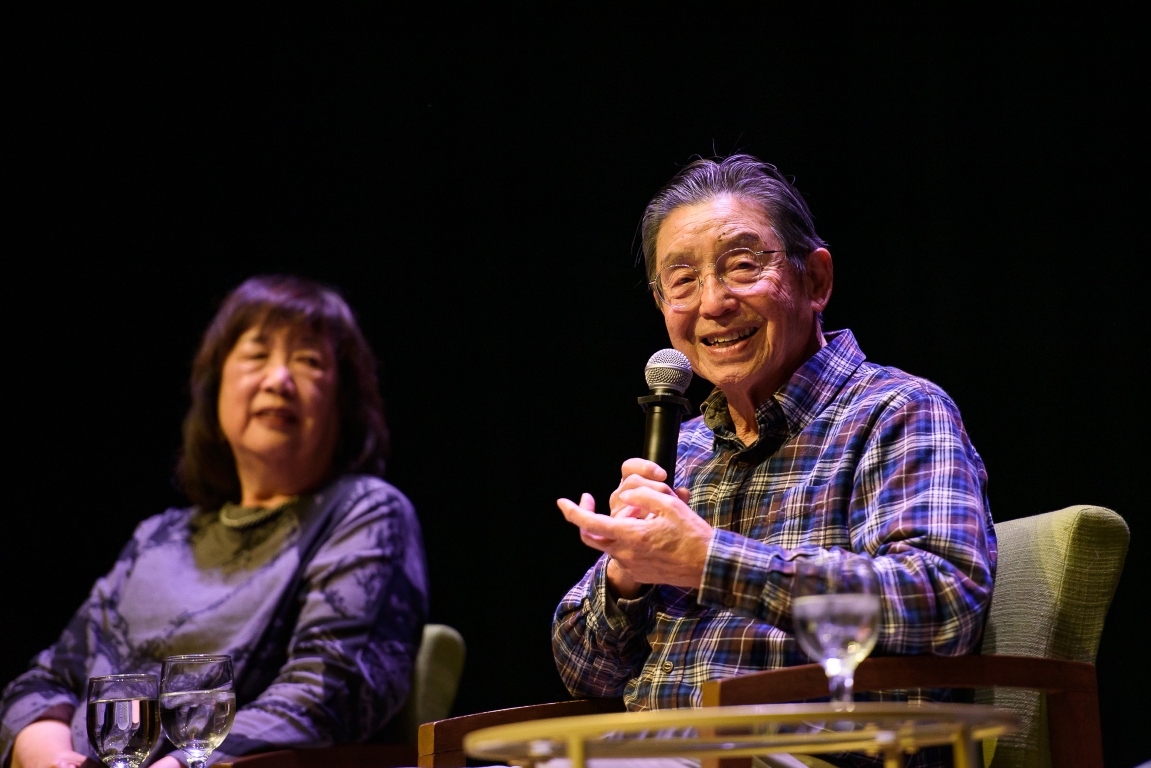On Monday, the Harker Speaker series hosted a special screening of the 2020 documentary “Chinatown Rising,” created by the father-and-son team of filmmakers of Harry Chuck and Josh Chuck. Piecing together notable moments from 20,000 feet of film footage compiled by Harry Chuck, “Chinatown Rising” surveys the diverse social character of Chinatown in the 1960s and 70s, chronicling the struggles faced by its historically marginalized population.
Early in the film, a young Harry, who had just entered the ministry, is seen working at what is now known as the Donaldina Cameron House, organizing and running its youth programs. Meanwhile, disaffected immigrant youths who had dropped out of school after being thrust into a culture where their language was not spoken (or in some cases forbidden) often found themselves in street gangs. George Woo, a Chinatown local, later became a key figure in organizing them for training programs as well as to fight for more inclusive education in schools and universities.
These and other key figures in Chinatown’s youth movement were instrumental in organizing major demonstrations such as the 1967 student strike at San Francisco State College, later known as San Francisco State University. During the height of the Civil Rights movement, Chinatown organizers also worked with organizations such as the Black Panthers to secure not only better education but better housing, which became a focal point of their actions.
Enrolled at SFSC at the time as a film student, Harry extensively documented his community’s struggle for better living conditions, filming protests, city council hearings and the day-to-day life of the people in the community he served. His son, Josh, compiled the footage recorded by his father and conducted interviews with a host of people who vividly remember their involvement in these actions, including every success and heartbreaking failure.
After the film, Harry and Josh were joined by Lucinda Lee Katz, a plaintiff in the case for multilingual education that went to the Supreme Court in 1974, resulting in the landmark decision in Lau V. Nichols. Answering questions from the audience, the three discussed their experiences being in the community during this tumultuous time and what was learned during the process of creating “Chinatown Rising.”
Harry remarked at how much easier it is to make films due to the spread of smartphones, and the importance of not taking for granted the ability to create stories and memories. Remembering a visit to China to show “Chinatown Rising” at a United States embassy. “When I was making films, that DVD would have required several huge reels and a big projector,” he said. “Now, you can do it. You can watch it on your phone; you can share it on your phone. You can do such wonderful things telling a story, and I hope you do, because they turn out to be your most treasured memories that you have.”
